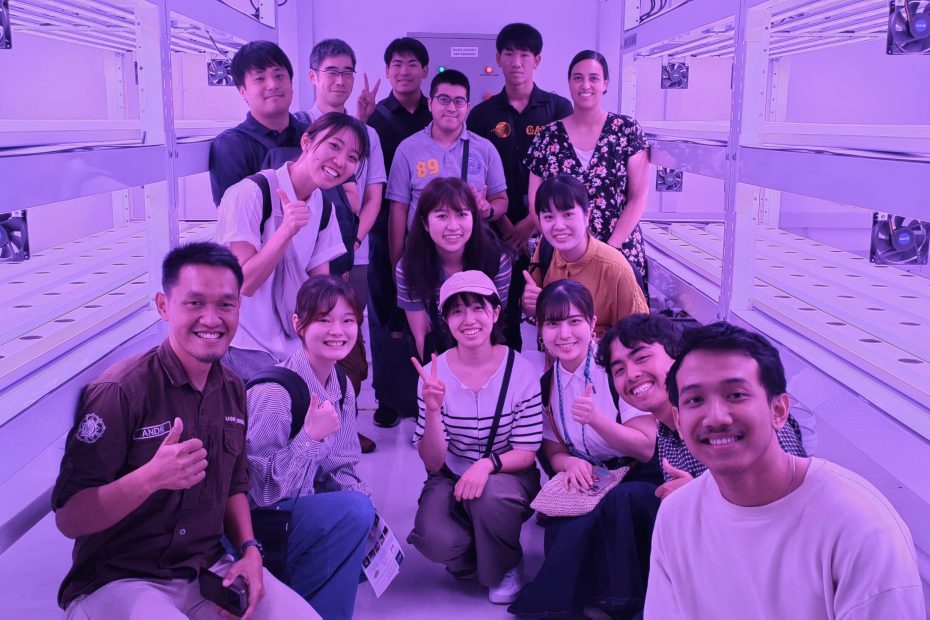On August 12, 2024, the SmartAgri Plant Factory welcomed a group of 13 students from Kyushu University, marking a significant event in the realm of sustainable agriculture and environmental stewardship. The visit was organized to introduce the students to the innovative research facilities dedicated to indoor farming, a crucial aspect of modern agriculture aimed at enhancing agricultural productivity and food production.
The delegation was accompanied by Associate Professor Takahiro Fujiwara, Ph.D., who expressed his enthusiasm for the collaboration between Japanese and Indonesian institutions in addressing global agricultural challenges. Upon arrival, the students were warmly greeted by Dr. Andri Prima Nugroho, the lead researcher at SmartAgri, who provided an overview of the facility’s mission and its alignment with the Sustainable Development Goals (SDGs), particularly those related to environment and food security.
During the tour, the students were introduced to various technologies employed in the plant factory, including hydroponics and vertical farming systems. These methods not only optimize space but also significantly reduce water usage, aligning with SDG 6, which emphasizes clean water and sanitation. The students were particularly impressed by the facility’s ability to produce high-quality agricultural products year-round, regardless of external weather conditions.
Dr. Nugroho elaborated on the importance of indoor farming in mitigating the impacts of climate change on traditional agriculture. By utilizing controlled environments, SmartAgri aims to enhance agricultural productivity while minimizing the carbon footprint associated with food production. This approach directly supports SDG 13, which focuses on climate action.
The students engaged in discussions about the challenges and opportunities in the field of agriculture, particularly in relation to food security and sustainable practices. They learned how SmartAgri’s research contributes to increasing food production efficiency while ensuring environmental sustainability. This aligns with SDG 2, which aims to end hunger, achieve food security, and promote sustainable agriculture.
As part of the visit, the students participated in a hands-on workshop where they could experience the planting and harvesting processes within the facility. This practical experience allowed them to appreciate the intricacies of indoor farming and its potential to revolutionize food production systems globally.
The visit concluded with a Q&A session, where students posed questions about the future of agriculture and the role of technology in enhancing food security. Dr. Nugroho emphasized the importance of collaboration between academia and industry in driving innovation and sustainability in agriculture.
The event not only fostered knowledge exchange but also strengthened ties between Kyushu University and SmartAgri, paving the way for future collaborations in research and development. Both parties expressed their commitment to advancing sustainable agricultural practices that benefit the environment and society.
In summary, the visit of Kyushu University students to SmartAgri Plant Factory was a fruitful engagement that highlighted the critical intersection of technology, agriculture, and environmental sustainability. It served as a reminder of the collective responsibility to work towards achieving the SDGs and ensuring a sustainable future for generations to come.
